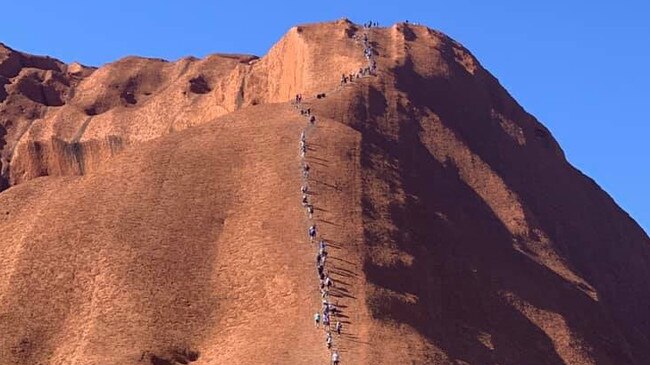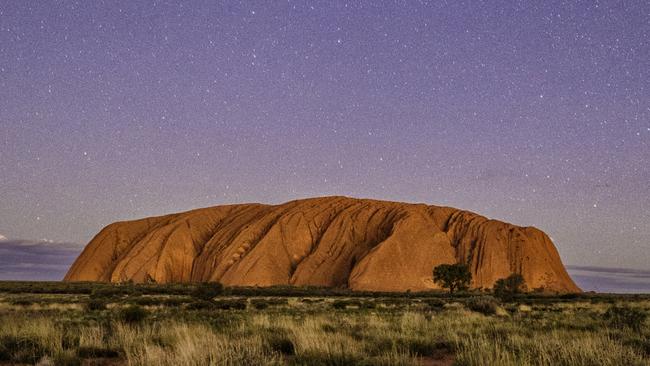Rush to climb Uluru before it’s closed permanently
An influx of tourists scrambling to be among the last to climb Uluru sparks safety fears.

Tourists travelling to climb Uluru have hit a “historic high” in anticipation of the climb being closed permanently in October.
Three months out from the closure, the tourist influx has sparked claims of trespassing, illegal dumping of rubbish, and disrespect in the rush to climb the rock.
Stephen Schwer CEO of Central Tourism Australia said there has been a massive influx of people in the run up to October 26, when the climb will be closed permanently.
“We are seeing a lot of forward booking for September school holidays so I have a feeling (the influx) will continue until the climb closed,” Mr Schwer told The Australian,
“There is a lot of domestic drive traveller coming for the express purpose of climbing the rock, and a lot of (accommodation) is booked up so we are urging people to plan ahead.”
CEO Voyages indigenous Tourism Australia Grant Hunt said the rush was causing a massive safety concern for those climbing the rock, as well and problems with people disrespecting the land they are travelling on.

“We are under a lot of pressure with the camping and caravanning sector, “ Mr Hunt said.
“Down the highway and on the Aboriginal Trust land … there are people who when they can’t get a booking they are finding themselves alternate locations which in most cases is trespassing and they do not have the same facilities so they are dumping their waste wherever they can,” Mr Hunt said.
“(There are) definitely safety concerns about the amount of people climbing — there are only finite resources and it is closing because it is not safe, I’m just crossing my fingers there isn’t a tragedy before October 26,” Mr Hunt said.
The Anangu traditional land owners and Alice Springs locals reportedly say visitors are leaving rubbish bins overflowing, and illegally dumping human waste on roadsides.
Uluru is sacred to indigenous Australians and the climb has always been discouraged by the park’s traditional owners, who deem it disrespectful due to the sacred nature of the area.
Some tourist operators have discouraged tourists climbing in recent times, both in respect of indigenous wishes and also because of safety factors.



To join the conversation, please log in. Don't have an account? Register
Join the conversation, you are commenting as Logout